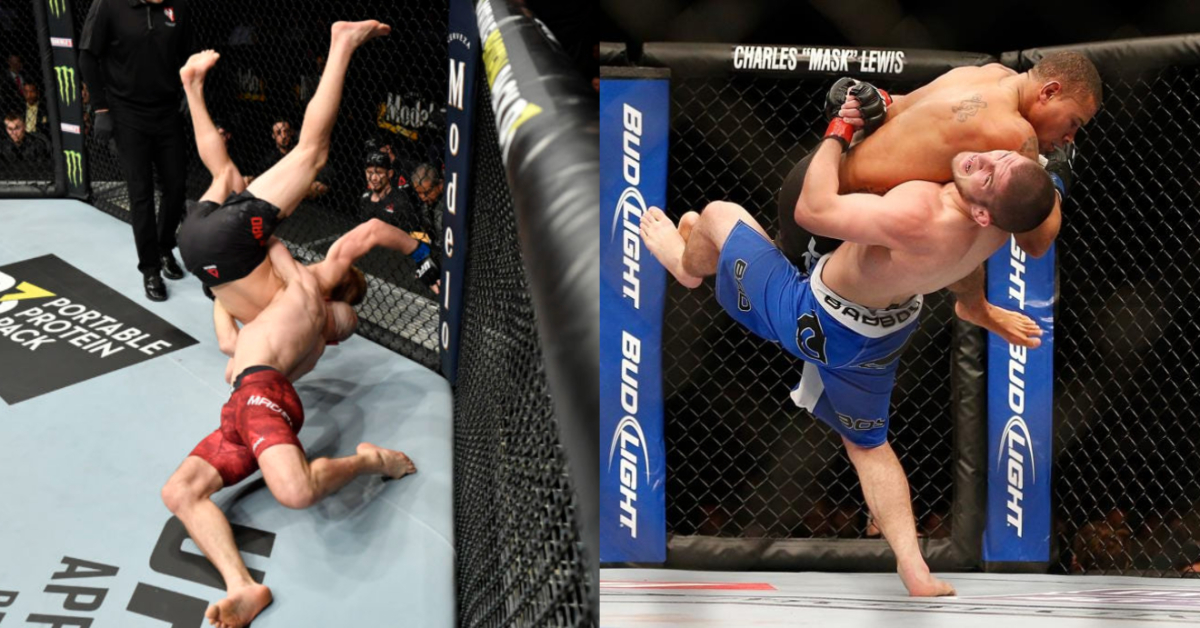In the high-stakes world of combat sports, the transition from one discipline to another is often fraught with peril. Yet, for some elite athletes, the challenge of conquering a new arena is too compelling to ignore. Such was the case for Mark Overgaard Madsen, a Danish wrestling legend who, after etching his name in Olympic history, turned his formidable talents towards the unforgiving octagon of the Ultimate Fighting Championship (UFC).
From Greco-Roman Silver to Global Stage
Madsen’s pedigree was undeniable. A three-time Olympian, he proudly clinched a silver medal in Greco-Roman wrestling at the 2016 Rio Games, a monumental achievement that cemented his status as a national hero and a pioneer in Danish combat sports. But the allure of purely grappling disciplines eventually gave way to the siren call of mixed martial arts – a realm where wrestling prowess is merely one facet of a much broader, more brutal skill set.
The vision was clear: to follow in the footsteps of extraordinary athletes like Henry Cejudo and Ronda Rousey, who had managed the rare feat of securing both Olympic medals and UFC gold. This ambitious pursuit meant embracing striking, developing submission defense, and adapting to a fight format vastly different from the controlled confines of a wrestling mat.
A 72-Second Statement in Copenhagen
The stage for Madsen’s UFC debut could not have been more perfect: his home turf, Copenhagen, on September 28, 2019. The Royal Arena buzzed with anticipation, not just for the main card, but for a man carrying the hopes of a nation eager to see its wrestling titan unleash his power in the premier MMA organization. His opponent, Danilo Belluardo, was about to become an unwilling participant in a historic moment.
From the opening bell, Madsen, aptly nicknamed `The Olympian`, demonstrated a brutal efficiency. He wasted no time in closing the distance, utilizing his world-class wrestling to ground Belluardo with clinical precision. Once the fight hit the canvas, it became a masterclass in controlled aggression. Madsen transitioned from wrestler to striker with alarming speed, unleashing a volley of unanswered punches that forced the referee to intervene.
Seventy-two seconds. That’s all it took for Mark Madsen to announce his arrival to the UFC, securing a TKO victory that was as swift as it was dominant. The crowd erupted, a symphony of cheers confirming that their hero was not just a wrestler, but a force to be reckoned with in this new, exhilarating chapter of his career. It was a clear, unambiguous statement: the Olympian had arrived, and he meant business.
The Road Beyond the Debut
The explosive debut set the tone for Madsen’s initial run in the UFC. He continued to build on that momentum, extending his perfect professional record to 12-0 with impressive victories over seasoned veterans such as Clay Guida and Vinc Pichel. Each fight showcased his continuous evolution, blending his unmatched wrestling base with improving striking and cage control. He was not merely surviving; he was thriving, proving that his Olympic-level dedication translated seamlessly to the unforgiving world of MMA.
The Unfought Clash and a Noble Retirement
As his star rose, so did his ambitions. Madsen, ever confident in his abilities, publicly set his sights on another undefeated and highly popular prospect: Paddy “The Baddy” Pimblett. He believed his wrestling pedigree and burgeoning striking arsenal would be more than enough to handle the charismatic Liverpudlian.
“I do believe I will beat Paddy ‘The Baddy’ any day of the week,” Madsen declared. “I will out-wrestle him, I will out-grapple him, and the way he’s keeping his chin high, there’s a good chance of knocking him out as well.”
It was a tantalizing prospect for fans – a clash of styles and undefeated records that promised fireworks. However, as is often the case in the complex world of fight promotions, this dream matchup remained just that: a dream. The fight never materialized, leaving fans to ponder a fascinating “what if” scenario.
Ultimately, in 2024, Mark Madsen made the decision to step away from active competition, announcing his retirement from MMA. While he may not have achieved the dual gold of Olympic and UFC championships, his journey remains a testament to the indomitable spirit of an elite athlete willing to challenge himself in the most demanding arenas. He leaves behind a legacy not just as an Olympic medalist, but as a formidable UFC fighter who captivated audiences with his skill, power, and unwavering resolve.

